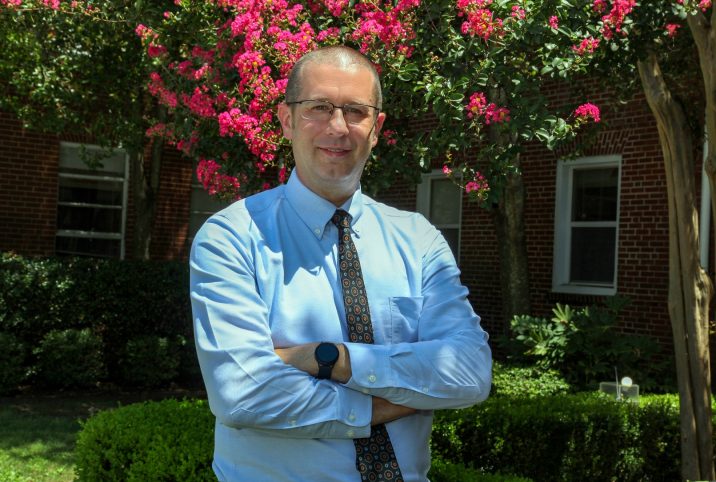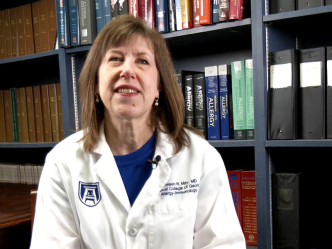A global pandemic. Bitter political battles. Gun violence. Wildfires and hurricanes.
The state of the world today can seem overwhelming to most adults, and more so to children. Many parents likely wonder what they can do in the midst of it all to ensure their children are coping mentally.
According to a child and adolescent psychiatrist at the Medical College of Georgia at Augusta University and the Children’s Hospital of Georgia, parents’ should have a simple strategy — just be there.
“The first, and most important step is just being present and willing to have a conversation with them. Not every family is,” says Dr. Dale Peeples, associate professor of psychiatry and health behavior. “There are big things going on in the world. Those things are on the news. People are talking about them. Talk to your kids and ask them what they think about those things and get a sense of where they are emotionally.”
He recommends parents make sure they take time to check-in daily, during dinner for example, and ask children open-ended questions, like “How was your day?” Those types of questions tend to lead to bigger discussions that can help parents get a gauge on how kids are feeling.
When it comes to the 24-hour news cycle that delivers terrible headlines right to our living rooms, Peeples says parents should let their kids’ ages determine whether they watch.
“With preschool-aged children, definitely try to shield them from the nightly news and explain things, like the coronavirus, for example, at their level,” he says. “With grade school kids, it’s best to consume the news as a family, so if they have questions, you’re there to answer them and offer context. High schoolers are honestly going to discover media on their own. Then it becomes about knowing what they’ve seen and where they’re source is.”
Parents should just ask, he says. “Certainly not every teen is going to want to talk about where they get their news, but most will be willing. They’re likely to be more focused on bigger social issues than younger kids are and they’re likely to have a more passionate response to those issues.”
That passion can lead to bigger problems like depression and anxiety, particularly in teens. While depression is rare in younger children, anxiety can also be a concern for them.
Symptoms of depression that parents should be on the lookout for are kids being tearful, withdrawn from the family and having sleep and appetite disruptions. “Some of it is normal teenage behavior,” Peeples acknowledges. “But what we really have to think about is how far the behavior is from baseline. Has there been a drastic change?”
Anxiety can manifest in different ways, particularly in younger children, who may complain of things like headaches and stomachaches. Older kids, with a bigger emotional vocabulary, can likely identify those feelings and talk about what is causing them to be worried or anxious.
Some mild depression and anxiety in children, particularly during these unprecedented times, is to be expected, Peeples says. “But if it causes disruption to normal life, causes issues with the family, it’s a problem that needs to be addressed.”
Peeples and other psychiatrists typically recommend a three-pronged approach — lifestyle changes, talk therapy and, if necessary, medication prescribed by a professional.
Lifestyle changes include making sure children’s days have structure, with normal sleep and wake times, and that they are doing things like having meals with family, maintaining some contact with their peers and getting outside and getting exercise.
Appropriately named talk therapy could take place at regular appointments with a psychologist or psychiatrist or could be as simple as children using their parents as a regular sounding board.
“In times like this, it can be easy to catastrophize things, to think the world is falling apart,” Peeples says. “These are not great times. Will it pass? I can say almost assuredly so. Sometimes kids just need someone who can say ‘Let’s take a step back and look at things rationally.’”
 Augusta University
Augusta University





